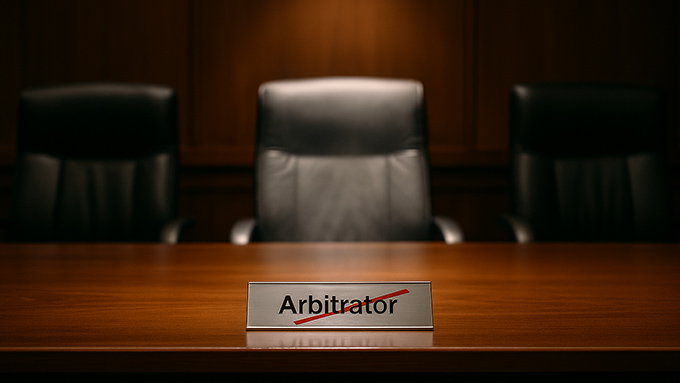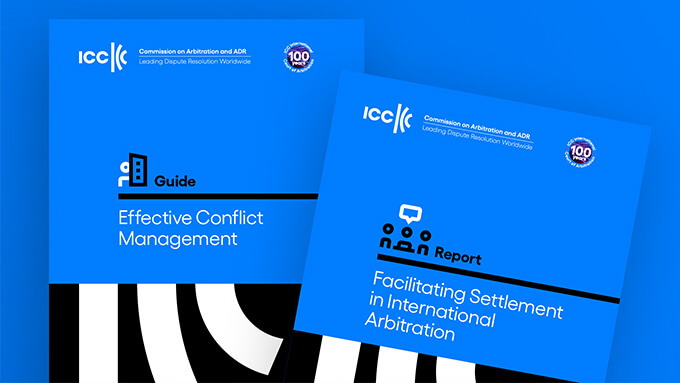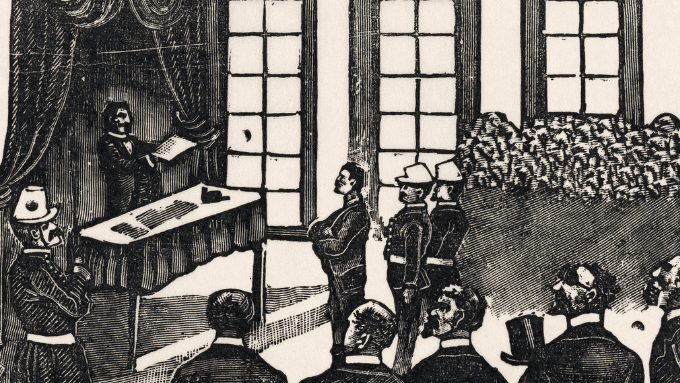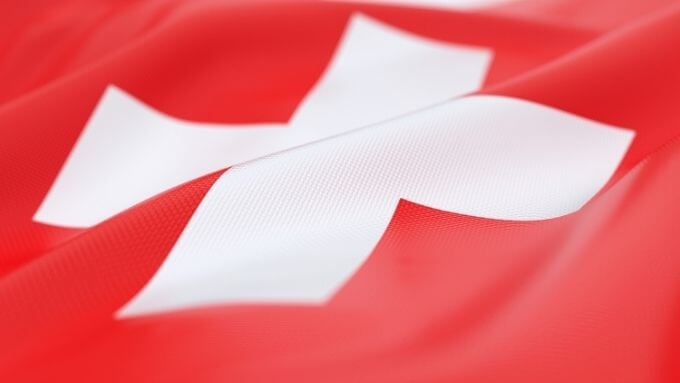The Prague Rules on the Taking of Evidence in Arbitration
Introduction
Time and cost efficiency continues to be the Achilles’ heel in international arbitration proceedings. Although the parties of a dispute choose to arbitrate in order to avoid everlasting hearings before national courts, they often face excessive amounts of arbitration costs[1]. Some practitioners and scholars argue that this stems from the common law approach adopted in the IBA Rules on the Taking of Evidence in International Arbitration[2] (“IBA Rules”), which is not suitable for every dispute, while others decline this reasoning[3]. In light of these ongoing discussion, as an alternative to the IBA Rules[4], a draft of the Inquisitorial Rules on the Taking of Evidence in International Arbitration[5] (“Prague Rules”) has been released which will be launched by the end of 2018.
The Main Features of the Prague Rules
As per the Prague Rules working group[6]’s preamble to the draft, the rules aim to increase efficiency in international arbitration by overcoming the obstacles claimed to be stemming from the common law approach in document production, cross-examination of witnesses, expert opinions and etc.
What is most notable is that, the working group as the drafters of the Prague Rules brings forward an inquisitorial model of procedure in which the arbitral tribunals are expected to be more pro-active.
The Civil Law Approach
The foremost mindset of the Prague Rules is the application of civil law approach that brings more inquisitorial and investigative powers to the arbitral tribunal[7] since the IBA Rules are criticized to be more adversarial, especially by the working group[8]; whereas, with the adversarial and confrontational approach stemming from the common law culture, the parties’ autonomy is stronger in the conduct of the proceedings.
In this manner, the Prague Rules explicitly regulate the pro-active role of the tribunal under Article 2 and brings broader power to the tribunal in terms of case conduct. The same article obliges the tribunal to advise the parties and steer them to the evidence what it considers to be appropriate to prove their claims. In other words, the Prague Rules encourage pro-activity by the tribunals instead of party-dependency.
Accordingly, as per fact finding, the Prague Rules encourage the tribunal to take an active role to establish the facts of the case, where it may request the parties to produce relevant documentary evidence, make factual witnesses available for testimony, appoint experts, and take any other action it deems appropriate[9].
Jura Novit Curia[10]
The Prague Rules provide a noteworthy regulation under Article 7 enabling the tribunal to apply legal provisions not pleaded by the parties, by seeking their consultative views. The same applies in cases wherein public policy issues shall be dealt. Since the IBA Rules does not contain a parallel provision, this regulation is noteworthy.
It shall be noted that there are diverging approaches in the national courts in relation to this issue where, in some cases, the decisions given by the tribunals applying legal provision not alleged by the parties may be annulled[11].
Assistance in Amicable Settlement
Another noteworthy divergence of the Prague Rules from the IBA Rules is that it explicitly encourages amicable settlement of dispute under Article 9. This is another step taken closer to the civil law approach where arbitrators have more of a tendency to offer settlement discussions. In this manner, upon consent of the parties, the tribunal may assist in an amicable settlement, and may even act as mediator.
Conclusion
As international arbitration emerges to be the premier dispute resolution mechanism[12], scholars and the practitioners continue their work to overcome the time and cost-inefficiencies in proceedings. The Prague Rules drafted as an alternative to the IBA Rules targets bringing civil law nuances to the soft law covering the rules on the taking of evidence, although they are criticized by some to be not so diverging from what the IBA Rules brought forward. Once the detailed provisions and long-lasting application of the IBA Rules is taken into consideration, only time will show the success chance of the Prague Rules in the upcoming years.
[1] Klaus Peter Berger, J. Ole Jensen, “Due Process Paranoia and the Procedural Judgment Rule: A Safe Harbour For Procedural Management Decisions By International Arbitrators”, Arbitration International, Volume 32, Issue 3, 1 September 2016, Pages 415–435, https://doi.org/10.1093/arbint/aiw020.
[2] IBA Rules on the Taking of Evidence in International Arbitration: https://www.google.com.tr/search?q=IBA+Rules+on+the+Taking+of+Evidence+in+International+Arbitration&rlz=1C1RUCY_trTR710TR710&oq=IBA+Rules+on+the+Taking+of+Evidence+
in+International+Arbitration&aqs=chrome..69i57j69i60l2j0l3.650j0j7&sourceid=chrome&ie=UTF-8
[3] Guilherme Rizzo Amaral, ‘Prague Rules v. IBA Rules and the Taking of Evidence in International Arbitration: Tilting at Windmills – Part I’, Kluwer Arbitration Blog, July 5 2018,http://arbitrationblog.kluwerarbitration.com/2018/07/05/prague-rules-v-iba-rules-taking-evidence-inter national-arbitration-tilting-windmills-part/; Guilherme Rizzo Amaral, ‘Prague Rules v. IBA Rules and the Taking of Evidence in International Arbitration: Tilting at Windmills – Part II’, Kluwer Arbitration Blog, July 6 2018, http://arbitrationblog.kluwerarbitration.com/2018/07/06/prague-rules-v-iba-rules-taking-evidence-international-arbitration-tilting-windmills-part-ii/.
[4] For detailed information as per the IBA Rules please see: Ezgi Babur, “Document Production Requests Pursuant to IBA Rules on the Taking of Evidence in International Arbitration–I”, January 2016, for hyperlink: http://www.erdem-erdem.av.tr/publications/law-post/document-production-requests-pursuant-to-iba-rules-on-the-taking-of-evidence-in-international-arbitration--i/ and Document Production Requests Pursuant to IBA Rules on the Taking of Evidence in International Arbitration–II”, May 2016, for hyperlink: http://www.erdem-erdem.av.tr/publications/law-post/document-production-requests-pursuant-to-iba-rules-on-the-taking-of-evidence-in-international-arbitration--ii/.
[5] The Inquisitorial Rules on the Taking of Evidence in International Arbitration: http://praguerules.com/prague_rules/.
[6] For the list of the working group: http://praguerules.com/working_group/.
[7] Duarte G. Henriques “The Prague Rules: Competitor, Alternative or Addition to the IBA Rules on the Taking of Evidence in International Arbitration?”, ASA Bull. 2/2018, p. 354.
[8] The Prague Rules p.2.
[9] The Prague Rules Article 3.
[10] The principle of jura novit curia means that the judge or arbitrator may apply provisions of the lex causae beyond the parties" submissions. For detailed information please see: Cenk Akil, “Hakimin Hukuku Kendiliğinden Uygulaması İlkesi (The principle of iura novit curia)”, AÜHFD, 2008, http://dergiler.ankara.edu.tr/dergiler/38/1498/16511.pdf.
[11] Duarte G. Henriques “The Prague Rules: Competitor, Alternative or Addition to the IBA Rules on the Taking of Evidence in International Arbitration?”, ASA Bull. 2/2018, p. 359 to 360.
[12] 2013 International Arbitration Survey, p.6; 2006 International Arbitration Survey, p.5; https://www.whitecase.com/sites/whitecase/files/files/download/publications/qmul-international-arbitration-survey-2015_0.pdf
All rights of this article are reserved. This article may not be used, reproduced, copied, published, distributed, or otherwise disseminated without quotation or Erdem & Erdem Law Firm's written consent. Any content created without citing the resource or Erdem & Erdem Law Firm’s written consent is regularly tracked, and legal action will be taken in case of violation.
Other Contents

Emergency arbitration addresses the need for interim protection before the arbitral tribunal is constituted in institutional arbitrations. Arbitral institutions establish short timeframes to ensure parties can obtain interim relief quickly. For example, the International Chamber of Commerce (“ICC”) requires that the emergency...

International arbitration remains the preferred mechanism for resolving complex cross-border disputes. Yet despite its advantages—neutrality, enforceability, flexibility—arbitration is frequently criticized for being too slow, too expensive, and too procedurally heavy. Often, parties proceed through hearings and...

For arbitral awards rendered in international commercial arbitration to produce legal effects in foreign jurisdictions, they must be subjected to proceedings for “recognition” and “enforcement.” This process is governed by the New York Convention as well as by the provisions of the Law on Private International Law...

Arbitrability, the determination of whether a specific subject matter can be resolved through arbitration, constitutes a fundamental aspect of arbitration within the scope of international commercial dispute resolution. This concept draws a delicate balance between party autonomy—a fundamental principle of arbitration...

The recognition, enforcement, and annulment of foreign court and arbitral awards in Türkiye are processes in which public policy emerges as one of the most critical criteria for review, both in theory and in practice. The Court of Cassation decisions determine the direction of case law regarding the scope and...

As is well known, the action for annulment of objection is a special type of lawsuit regulated under Article 67 of the Turkish Execution and Bankruptcy Law No. 2004 (“EBL”). The primary objective of this action is to nullify a debtor’s objection to execution proceedings. Despite its procedural function of facilitating...

On 16 December 2024, the London Court of International Arbitration (“LCIA”) released its third batch of challenge decisions covering the period from 22 July 2017 to 31 December 2022. The LCIA has also issued a detailed commentary that identifies key legal themes and analytical trends, offering practitioners...

The International Chamber of Commerce (“ICC”) has published its report on the dispute resolution statistics for 2023 (“Report”) , shedding light on the evolving landscape of international arbitration...

Syndicated loans undoubtedly hold a significant position among global financing models. In 2023 alone, 3,655 syndicated loans were provided to companies in the US, with their total value reaching USD 2.4 trillion...

Preliminary attachment refers to the temporary seizure of a debtor's assets to secure a creditor's claim. While it serves as a vital instrument for safeguarding the rights of creditors, it is subject to specific and stringent conditions under Turkish law to prevent any potential misuse...

One of the most important reasons for parties to choose arbitration is the opportunity to freely choose their arbitrators. This freedom granted to the parties also distinguishes arbitration from proceedings before state courts, where the parties are deprived of the power to determine the judges who will conduct the...

The 6th Civil Chamber of the Court of Cassation ruled on October 12, 2022, that national courts have jurisdiction over objections to provisional measures in international arbitration disputes...

The declaration of intent to resolve disputes through arbitration is the fundamental constituent element of an arbitration agreement. To speak of a valid arbitration agreement, the parties' intention to arbitrate must emerge in a way that leaves no room for dispute...

In the wake of the evolving dynamics of commercial transactions, the Netherlands Arbitration Institute Foundation (NAI) announced new arbitration rules . 2024 NAI Arbitration Rules are in force as of 1 March 2024 and will be applicable on proceedings filed on or after this date...

With the global shift to online activities, domain names play a crucial role in identifying businesses. It is more common than ever for a domain name to be registered that is confusingly similar to a trademark or service mark...

The ICC Commission on Arbitration and ADR (“Commission”) published a new guide and report with the aim to increase awareness on alternative dispute resolution (“ADR”) mechanisms to prevent disputes and strengthen the relationship between all stakeholders.The Guide on Effective Conflict Management...

Mergers and Acquisitions (“M&A”) are restructuring of companies or assets through various types of financial transactions, such as mergers, acquisitions, purchase of assets, or management acquisitions. This Newsletter article covers M&A disputes being solved before arbitral tribunals.

In the context of arbitration practice, the principle of revision au fond means that the courts can not examine the merits of a dispute when reviewing an arbitral award. This principle is most commonly encountered in set aside and enforcement proceedings. An arbitral award is evidence of the parties’ willingness...

Under Turkish law, parties may agree on the settlement of disputes that have arisen or may arise, regarding the rights that they can freely dispose of, by arbitration. However, disputes which are not subject to the will of parties, such as the disputes relating to in rem rights of immovables, bankruptcy law...

On 4 September 2020, a research project “Does a Right to a Physical Hearing Exist in International Arbitration?” was launched by an International Council for Commercial Arbitration (“ICCA”) taskforce. Due to the Covid-19 pandemic, many arbitration hearings were held online. Many institutional rules...

Dubai International Arbitration Center amended its Arbitration Rules on 25 February 2022. The 2022 Arbitration Rules were published on 2 March 2022 and came into effect on 21 March 2022. The Rules will be applied to arbitrations that are filed after 21 March 2022; unless parties agree otherwise...

In the aftermath of the Achmea decision, controversies on intra-EU arbitrations continue. Most recently, the Paris Court of Appeal has annulled two arbitral awards rendered against Poland. Meanwhile, the Higher Regional Court of Berlin has refused to declare that an Irish investor’s ICSID claim...


Under Turkish law, the legal remedy that can be applied against arbitral awards is an annulment action. Law on International Arbitration No. 4686 (“IAL”) finds its application area in arbitration proceedings where Turkey is the place of arbitration...

It is well known that following a decision of the Court of Justice of the European Union, problems arose related to arbitration of intra-EU disputes, and particularly arbitration under the Energy Charter Treaty...

Arbitration in corporate law contains controversial elements in many respects, especially the issue of arbitrability. Even in legal systems where these disputes are considered to be arbitrable, uncertainties remain on whether an arbitration clause can be included in the articles of...





Arbitration has benifited from a great increase in the use of technology which has directly effected the conduct of proceedings. More particularly, with digitalization, the way that we conduct arbitration proceedings has been changed to reflect the current needs of parties, with an aim of increasing time...
































































